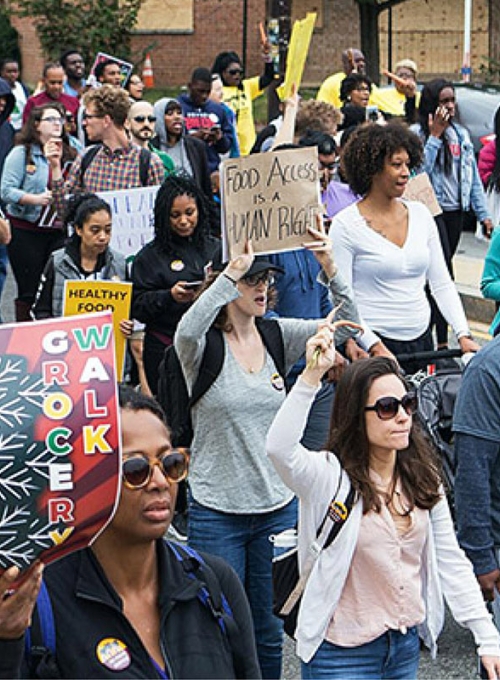
Food Policy Networks
The Food Policy Networks (FPN) project is celebrating a significant milestone as it transitions to become an independent project. For 12 years, the Johns Hopkins Center for a Livable Future (CLF) has supported the Food Policy Networks project, but the project —and food policy councils (FPCs) in general —have outgrown this academic center. Food Policy Networks will now be fiscally sponsored by Social & Environmental Entrepreneurs (SEE), enabling it to thrive by experimenting with deeper and more engaged learning, providing technical support for policy change, and convening to expand collaboration.
To steward this transition, Food Policy Networks is hiring a Network Director to guide the overall direction, operations, fundraising, partnerships, and communication of the project. The Network Director will be an employee of SEE, the new fiscal sponsor. FPN is seeking an experienced, network-minded, energetic, creative and committed person to grow the Network as an independent organization. Are you the right person for the job? Apply here by October 24, 2025.
Under its new sponsorship, Food Policy Networks will advance:
- Capacity building by growing leadership and convening skills and holding space to collaborate and learn from one another, so that FPCs achieve their goals.
- Policy incubation to empower FPCs to lead and support strategic and community-driven advocacy for policies at the city, county, state, Tribal and federal levels.
- Convening that brings FPCs together to build relationships across scales, and foster networks of FPCs at various scales, like state or regional.
- Information Management for resources, data, and research on FPCs.
- Administrative and financial commons to provide fiscal and administrative support to FPCs in development or transition.

You Had to Be There: Working on Equity in Jackson, Mississippi
A Community of Learning and Practice convened in Mississippi to deepen practices of justice.

FPC Report 2020 Released
This report by the Food Policy Networks project captures how food policy councils began responding and adapting to emerging food systems challenges during the crises of 2020.

